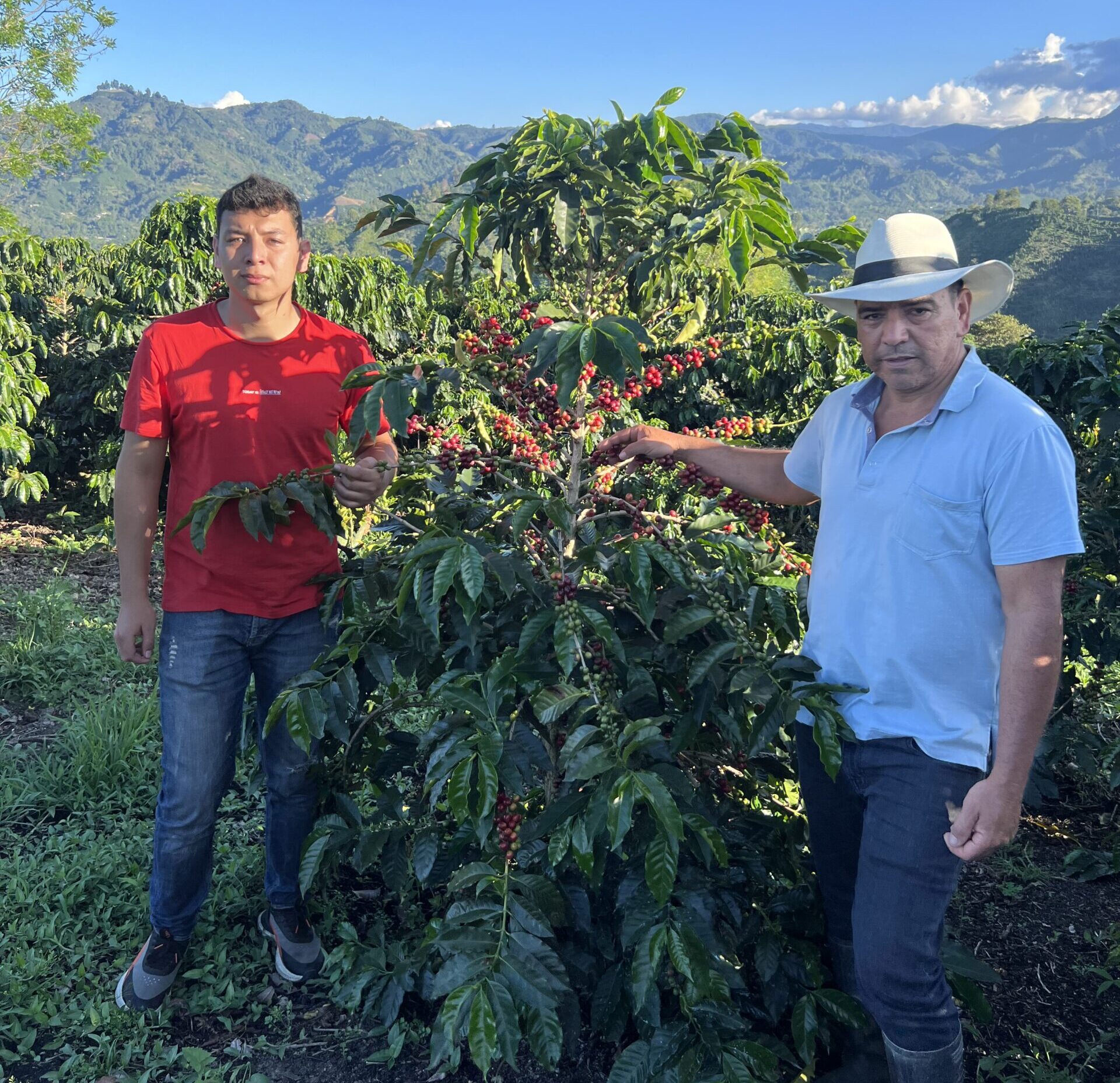Initially a pastureland for the local cattle, the Buenos Aires farm is situated in the small town of Bruselas. Located between the convergence of the Eastern and Central regions of the Andes mountain range, this area serves as a special location for coffee production. The farm has been under the care of the producers for two generations and is presently looked after by Beto Narvaez. Between 1995 and 2005, it witnessed a shift from traditional coffee varieties such as Caturra and Castillo to include other popular varieties, especially Pink Bourbon. Today, the farm consists of 8 hectares in natural reserve and offers 100% handpicked natural and washed coffee.
The ripe coffee cherries are carefully handpicked and then submerged in water to separate the less dense beans, which float to the surface. After this initial selection, the water is drained, and the cherries are placed in a hopper before being transferred to drying beds. At this stage, any green or underripe beans mistakenly collected are manually sorted out. The selected beans then undergo a dry anaerobic fermentation process in sealed bins for 100 hours, allowing the beans to develop complex flavors. Following fermentation, the beans are dried on African beds for 25 days, ensuring they reach the optimal moisture content for further processing.



